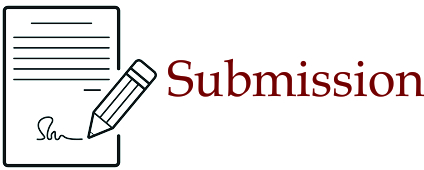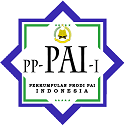Analisis Faktor Penghantar Upaya Peningkatan Kompetensi Profesional Guru
Abstract
Keywords
Full Text:
85-95References
Albrahim, F. A. (2020). Online teaching skills and competencies. Turkish Online Journal of Educational Technology-TOJET, 19(1), 9–20.
Arianto, F., Mustaji, Masitoh, S., Kholidya, C. F., & Hamsia, W. (2021). Online Project Based Learning dalam Meningkatkan Kompetensi Guru Menulis Karya Ilmiah. 5, 1–10.
Awalya, A., Munawaroh, E., Nugroho, I. S., Anggraeni, W., & Susilawati. (2019). Kontribusi Pengalaman Kerja dan Keaktifan Organisasi Profesi terhadap Kompetensi Humanis Direktif Guru Bimbingan dan Konseling di Kabupaten Brebes. Prosiding Seminar …, 131–135. https://proceeding.unnes.ac.id/index.php/snpasca/article/download/261/217
Caena, F., & Redecker, C. (2019). Aligning teacher competence frameworks to 21st century challenges: The case for the European Digital Competence Framework for Educators (Digcompedu). European Journal of Education, 54(3), 356–369.
Cremin, T., & Oliver, L. (2017). Teachers as writers: A systematic review. Research Papers in Education, 32(3), 269–295.
Fauth, B., Decristan, J., Decker, A.-T., Büttner, G., Hardy, I., Klieme, E., & Kunter, M. (2019). The effects of teacher competence on student outcomes in elementary science education: The mediating role of teaching quality. Teaching and Teacher Education, 86, 102882.
Febriana, R. (2021). Kompetensi guru. Bumi Aksara.
Forlin, C., & Chambers, D. (2011). Teacher preparation for inclusive education: Increasing knowledge but raising concerns. Asia-Pacific Journal of Teacher Education, 39(1), 17–32.
Gadusova, Z., & Predanocyova, L. (2018). Developing teacher competences in a student teacher population. Education Research and Perspectives, 45, 98–123.
Ghozali, I., & Latan, H. (2015). Partial Least Squares Konsep Teknik dan Aplikasi Dengan Program Smart PLS 3.0. Semarang: Universitas Diponegoro Semarang.
Hanraets, I., Hulsebosch, J., & de Laat, M. (2011). Experiences of pioneers facilitating teacher networks for professional development. Educational Media International, 48(2), 85–99.
Komba, S. C., & Mwakabenga, R. J. (2019). Teacher professional development in Tanzania: Challenges and opportunities. Educational Leadership, 1–12.
Kulshrestha, A. K., & Pandey, K. (2013). Teachers training and professional competencies. Voice of Research, 1(4), 29–33.
Kunter, M., Kleickmann, T., Klusmann, U., & Richter, D. (2013). The development of teachers’ professional competence. In Cognitive activation in the mathematics classroom and professional competence of teachers (pp. 63–77). Springer.
Liakopoulou, M. (2011). The Professional Competence of Teachers: Which qualities, attitudes, skills and knowledge contribute to a teacher’s effectiveness. International Journal of Humanities and Social Science, 1(21), 66–78.
Makovec, D. (2018). The Teacher’s Role and Professional Development. International Journal of Cognitive Research in Science, Engineering and Education, 6(2), 33.
Mirzagitova, A. L., & Akhmetov, L. G. (2015). Self-Development of Pedagogical Competence of Future Teacher. International Education Studies, 8(3), 114–121.
Mulder, M. (2017). Competence theory and research: A synthesis. In Competence-based vocational and professional education (pp. 1071–1106). Springer.
Osmond-Johnson, P., Campbell, C., & Faubert, B. (2019). Supporting professional learning: the work of Canadian teachers’ organizations. Professional Development in Education, 45(1), 17–32.
Palettei, A. D., & Sulfemi, W. B. (2019). Pengaruh Kelompok Kerja Guru (KKG) Terhadap Peningkatan Kompetensi Pedagogik dan Kemampuan Menulis Karya Ilmiah. JPDI (Jurnal Pendidikan Dasar Indonesia), 4(2), 53. https://doi.org/10.26737/jpdi.v4i2.1522
Pardini, A., Jaya, E., Ihsanudin, A., & Luthfi, A. M. (2022). The Implementation of Teacher Leader Collaboration; Start-Up Project Leadership, Sekolah Guru Indonesia. Nidhomul Haq : Jurnal Manajemen Pendidikan Islam, 7(2), 242–254. https://doi.org/10.31538/ndh.v7i2.2215
Pragiwani, M. (2016). Pengaruh Kepemimpinan, Pendidikan Dan Pelatihan Motivasi Kerja, Dan Budaya Organisasi Terhadap Kompetensi Dan Kinerja Guru. Jurnal STEI Ekonomi, 25(01), 153–190.
Rahman, A., Dzunur, R., & Nur, I. (2022). Knowledge Management as an Effort to Develop Learning Organizations in Islamic Educational Institutions. Nidhomul Haq: Jurnal Manajemen Pendidikan Islam, 7(1), 92–102. https://e-journal.ikhac.ac.id/index.php/nidhomulhaq/article/view/2065
Riduwan & Engkos Ahmad Kuncoro. (2007). Cara Menggunakan dan Memaknai Analisis Jalur (Path Analysis). Alfabeta.
Santagata, R., & Yeh, C. (2016). The role of perception, interpretation, and decision making in the development of beginning teachers’ competence. ZDM, 48(1), 153–165.
Saputra, F. (2021). Leadership, Communication, And Work Motivation In Determining The Success Of Professional Organizations. Journal of Law, Politic and Humanities, 1(2), 59–70.
Sugiri, U., & Ma’shum, S. (2022). The leadership of The Head of Madrasah in Improving Quality of Education. Nidhomul Haq : Jurnal Manajemen Pendidikan Islam, 7(2), 295–306. https://doi.org/10.31538/ndh.v7i2.2184
Sugiyono, D. R. (2002). Metode penelitian administrasi. Bandung: Alfabeta.
Suraji, I. (2012). Urgensi kompetensi guru. Edukasia Islamika, 10(2), 70284.
Syahid, A. A., Hernawan, A. H., & Dewi, L. (2022). Analisis Kompetensi Digital Guru Sekolah Dasar. Jurnal Basicedu, 6(3), 4600–4611.
Wijaya, A., & Sumarno, S. (2017). Evaluasi dampak pendidikan dan pelatihan pengembangan keprofesian berkelanjutan guru Matematika di PPPPTK Matematika Yogyakarta. Jurnal Penelitian Dan Evaluasi Pendidikan, 21(2), 127–141. https://doi.org/10.21831/pep.v21i2.10113
Williams, C., & Beam, S. (2019). Technology and writing: Review of research. Computers & Education, 128, 227–242.
DOI: https://doi.org/10.18860/jpai.v8i2.17601
Refbacks
- There are currently no refbacks.
Copyright (c) 2022 Shinta Nento, Abdul Haris Abdullah,

This work is licensed under a Creative Commons Attribution-ShareAlike 4.0 International License.
...............................................................................................................................................................
Editorial Office:
Fakultas Ilmu Tarbiyah dan Keguruan
Universitas Islam Negeri Maulana Malik Ibrahim Malang
Jalan Gajayana 50 Malang, Jawa Timur, Indonesia 65144
Phone (0341) 552398, Faximile (0341) 552398
E-mail: jpai@uin-malang.ac.id
...............................................................................................................................................................

J-PAI: Jurnal Pendidikan Agama Islam is licensed under a CC BY-SA 4.0.
...............................................................................................................................................................
Indexed by:


















